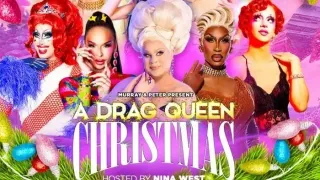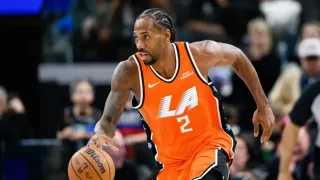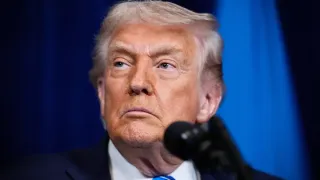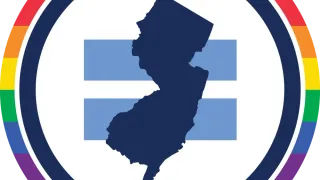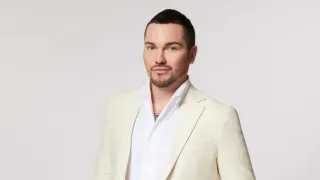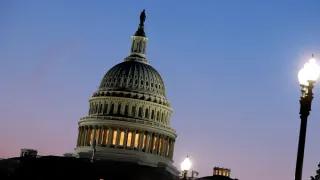November 10, 2023
SZA Leads the 2024 Grammy Nominations as Women Outpace Men in the Leading Categories
Maria Sherman READ TIME: 3 MIN.
Killing her ex? That's a bad idea. Writing "Kill Bill" and releasing her critically acclaimed sophomore album "SOS" earlier this year? That was a great one. SZA is the lead contender for the 66th Grammy Awards, with nine nominations announced Friday.
"Kill Bill," her revenge anthem cloaked in an R&B ballad, earned her nods for record of the year, song of the year, and best R&B performance. "SOS" is also up for album of the year and best progressive R&B album. The 2024 ceremony will mark the second time SZA has been nominated for record, album, and song of the year in the same year.
And just like at the box office, "Barbie" will be seen – and heard – at the Grammys. Music from the hit film's soundtrack earned 11 nominations, including nabbing four of the five slots in the visual media song category.
If there is an overall trend in the 2024 nominations, it's that female acts outperformed their male counterparts. The majority of leading nominees are women and include superstars like Taylor Swift, Billie Eilish, Miley Cyrus and Olivia Rodrigo. In both the record and album of the year categories, the only man represented is Jon Batiste.
"Seeing the women nominees this year, and the number of them, was not a surprise but it was something that made me happy," the Recording Academy CEO and President Harvey Mason jr. told The Associated Press. He believes that representation allows the next group of creators to look at the nominees and say: "Maybe somebody will love what I do one day, or maybe I have an opportunity to express myself or voice my thoughts like that person."
SZA, of course, leads the charge, also picking up nominations for best traditional R&B performance ("Love Language"), best R&B song ("Snooze"), best melodic rap performance ("Low"), and best pop duo/group performance ("Ghost in the Machine"). The last features Phoebe Bridgers, who – alongside Victoria Monét, the only leading nominee also up for best new artist – boasts the second-most nominations with seven.
Six of Bridgers' nods are with her band boygenius, nominated for the first time for record of the year, album of the year, best rock performance, best rock song, best alternative music performance, and best alternative music album.
Also earning six nominations: Swift, Rodrigo, Cyrus, Eilish, Brandy Clark, Batiste and producer Jack Antonoff.
Only recordings released between Oct. 1, 2022, through Sept. 15, 2023 were eligible.
In addition to Monét, the best new artist category is rounded out by Gracie Abrams, Fred again.., Ice Spice, Jelly Roll, Coco Jones, Noah Kahan and The War and Treaty.
For album of the year, it's again Batiste, boygenius, Cyrus, Rodrigo, Swift, and SZA, but with the addition of Lana Del Rey's "Did you know that there's a tunnel under Ocean Blvd" and Janelle Monáe's "The Age of Pleasure."
The song of the year category features Del Rey's "A&W," Swift's "Anti-Hero," Batiste's "Butterfly," Cyrus' "Flowers," SZA's "Kill Bill," Rodrigo's "vampire," and two tracks from the "Barbie" soundtrack: Dua Lipa's "Dance The Night" and Eilish's "What Was I Made For?"
While "I'm Just Ken" from "Barbie" did get a nomination, it's in a songwriting category – so actor Ryan Gosling is not up for a Grammy.
What else is missing? Some fans may notice a dearth of Latin and country musicians in the main categories.
"We need to do more work with our country voters and continue to invite more country voters to the process," says Mason jr. "Another thing that surprised me was, as big of a year that Latin had this year, (that) we didn't have more Latin representation in some of the general fields."
"We want to make sure that our membership is representative of the music that's being created and concerned," he added. "So, these nominations always inform us on what we're going to do over the next few years. And these nominations in particular have told us we need to continue to reach out and communicate with the voting groups within country and Latin."
There are three new categories at the 2024 Grammys: best pop dance recording, best African music performance and best alternative jazz album. Four of the five acts in the best African music performance category are nominated for the first time: ASAKE & Olamide for "Amapiano," Davido featuring Musa Keys for "UNAVAILABLE," Ayra Starr for "Rush," and Tyla for "Water." The fifth is the already Grammy-winning Burna Boy for "City Boys."
The 2024 Grammy Awards will air Feb. 4 live on CBS and Paramount+ from the Crypto.com Arena in Los Angeles.
